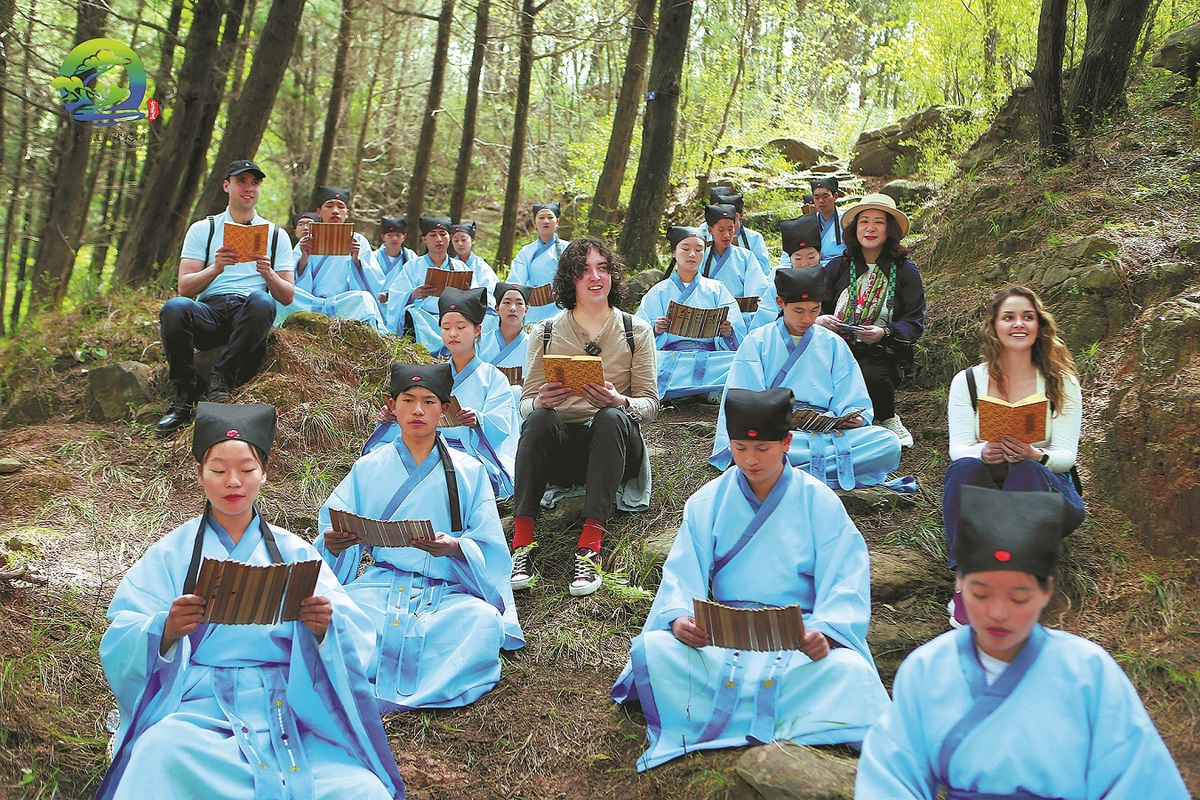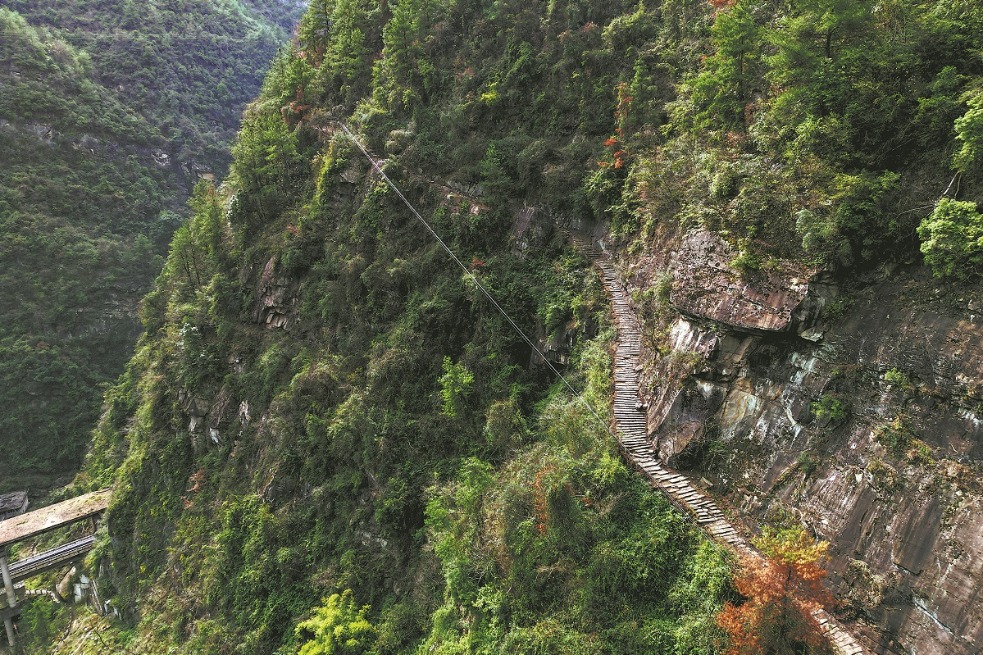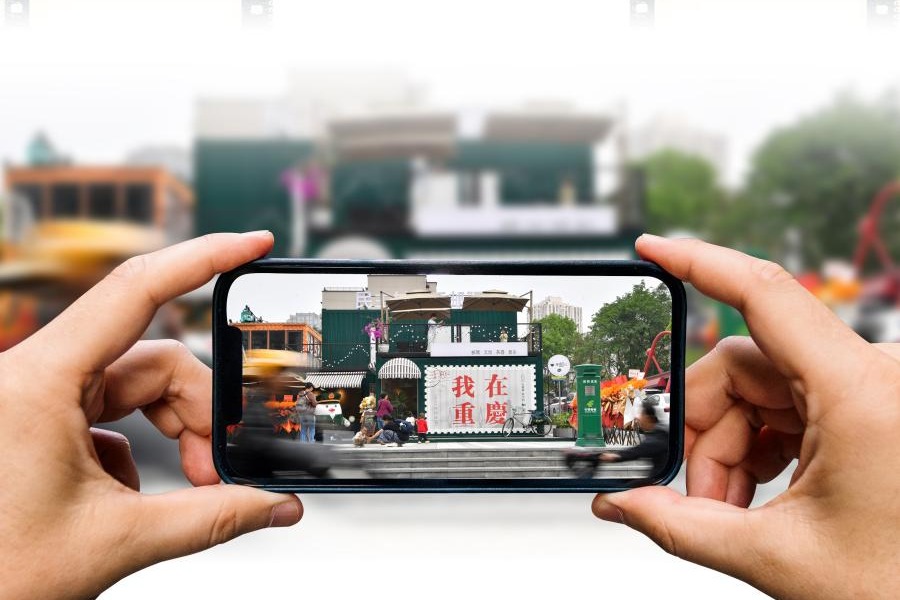Walking ancient paths a step closer for modern-day visitors


Walking in the footsteps of ancient travelers along Shudao is breathtaking, with rock carvings and cliff inscriptions that seem to whisper stories from China's past.
Now, these cultural treasures along the ancient roads connecting present-day Sichuan province and Central China will be more accessible to explorers.
The development plan of four well-designed cultural heritage themed travel trails of Shudao's 160-kilometer-long Jinniu (Golden Ox) Road section, was recently announced, aiming to cultivate the route's cultural and historical value as a strategic road system.
The trails, which span Guangyuan and Mianyang in Sichuan province, were among the top 10 outstanding cultural heritage-themed tourism routes in 2024.
The construction period will take place from 2025 to 2027. Local authorities also plan to organize study tours and intangible cultural heritage workshops to boost income for locals through tourism, according to Xinhua News Agency.
"Besides national and provincial-level immovable cultural relics along the Jinniu Road, we should also strengthen protection for lower level cultural heritage, including stone bridges," said Huang Jian, an associate research fellow at the Sichuan Provincial Institute of Cultural Relics and Archaeology who is in charge of designing the Jinniu trails.
The authorities plan to develop a mobile app or mini-program that allows tourists to access information about cultural heritage, dining options and accommodation along the travel trails. The app will also provide customized itineraries based on user demand.
Shudao was originally dotted with posts offering lodging, meals and fresh horses for officials transporting imperial documents and military dispatches.
"We plan to build several service centers at carefully selected locations near the historical post houses, allowing tourists to dine, rest, stay, and even rent bicycles there," Huang said.
Authorities should encourage locals to convert vacant properties into homestays or eateries, to boost incomes and address the needs of tourist, he said.
"Travelers mainly visit the isolated scenic spots along Shudao for sightseeing. Now, we are transforming this ancient network into living cultural roads by linking its fragmented heritage into a continuous journey," he said.
To elevate the visitor experience, physical and digital interpretations are essential to showcase Jinniu Road's cultural heritage. These include digital exhibits of exquisite Buddhist statues and murals, Huang said.
Shudao spans Sichuan, Shaanxi and Gansu provinces, and Chongqing municipality, which presents another challenge to protection efforts.
Huang said it's important that locals volunteer to protect Shudao to keep watch over nearby areas and report problems to the authorities.
Zheng Wanquan, an associate researcher at the Sichuan Provincial Institute of Cultural Relics and Archaeology, said Shudao can blend its historical legacy with ease of access.
"People can walk these ancient paths and literally step through history," Zheng said.
Authorities will carefully select sections of Shudao to open to visitors.
Zou Yiqing, head of the department of heritage sustainable development at the Beijing Tsinghua Tongheng Urban Planning and Design Institute, said Shudao was once a vital artery connecting important cities.
"But now we have (transportation) options like cars, trains and planes. This shift makes it challenging to cultivate emotional connections with Shudao," she said.
To unlock its full cultural value, Zou believes deeper exploration and more promotion are needed. The ancient network offers rich cultural themes and experiences. For example, its marvelous views once inspired masterpieces by iconic Tang Dynasty (618-907) poets.
During the early 20th century, overseas explorers and travelers wrote about their Shudao expeditions along and captured valuable historical photos.
"It provides a glimpse into the past," Cai Dongzhou, a history professor from China West Normal University, said. "And there have been more overseas hikers on the routes in recent years."
Wang Kaihao contributed to this story.
- Walking ancient paths a step closer for modern-day visitors
- Ancient roads paved foundation of national unity
- Customs authorities crack down on toy doll smuggling
- Tapping digital tech urged to build cultural strength
- Xi congratulates Fudan University on 120th founding anniversary
- Legoland Shanghai gears up for grand opening in July





































